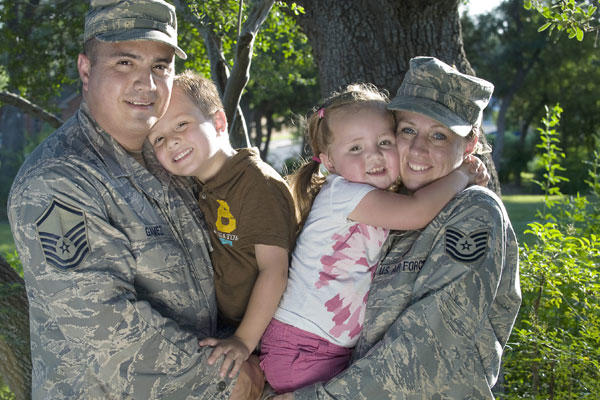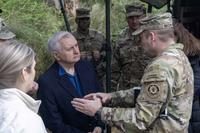Effective September 30, 2016, the entitlement known as Family Subsistence Supplemental Allowance (FSSA) will be terminating for members stationed in CONUS, Puerto Rico, the US Virgin Islands, or Guam.
What is FSSA?
The FSSA program was established as a supplement an individual’s BAS to raise their income above the level that qualifies them for the Supplemental Nutrition Assistance Program (SNAP) program, formerly known as the food stamp program. Officer and enlisted members entitled to BAS may also qualify for FSSA. FSSA is an allowance that is payable at up to $1,100 a month.
What are the Qualifying Rules For SNAP Benefits?
Under federal rules, to be eligible for SNAP benefits your household income and resources must meet three tests:
- Your gross monthly income — that is, its income before any deductions are applied — generally must be at or below 130% of the poverty line. For a family of three, the poverty line used to calculate SNAP benefits in federal fiscal year 2016 is $1,675 a month. Thus, 130 percent of the poverty line for a three-person family is $2,177 a month, or about $26,100 a year. The poverty level is higher for bigger families and lower for smaller families
- Your net income, or income after deductions are applied, must be at or below the poverty line.
- Your assets must fall below certain limits: households without an elderly or disabled member must have assets of $2,250 or less, and households with an elderly or disabled member must have assets of $3,250 or less
Combat pay, Hostile Fire pay, and Imminent Danger Pay are not counted as income for SNAP. All other pay and allowances are counted as income.
Why Is This Benefit Going Away?
The program began in 2001, after media reports of military families using food stamps forced Congress to act, but the National Defense Authorization Act of 2016, also known as the military budget, did away with it. The Military Compensation and Retirement Modernization Commission, recommended ending the program, after studies found that SNAP benefits were a more efficient way of helping needy families. DOD's data shows that fewer than 300 people qualify for FSSA worldwide. A 2010 DOD report showed that an E-4 with over 3 years service must have 7 members in their family at Ft. Bragg, or 9 in their family in San Diego to qualify for the program.
What Nutritional Benefits Remain For Needy Military Families?
Military families can still qualify for SNAP benefits if their income levels meet the above guidelines. SNAP benefits are not available OONUS, therefore FSSA benefits will remain in effect for needy families stationed there.
The Special Supplemental Nutrition Program for Women, Infants, and Children (WIC) provides nutritious food to low income women, infants, and children up to age 5 who are at nutritional risk. Participants also get information about healthy eating and referrals to health care and other social services. Federal regulations allow states to exclude military housing and other allowances from the income computations. These include:
- Basic Allowance for Housing (BAH)
- Family Separation Housing (FSH)
- Overseas Housing Allowances (OHA)
- Outside the Continental U.S. (OCONUS) Cost-of-Living Allowances (COLA)
The National School Lunch and School Breakfast Programs provide nutritious low cost or free meals to children attending participating schools and snacks at certain afterschool care programs.
For all Service Members:
- Any in-kind benefit, such base housing, is not considered income.
- Family Subsistence Supplemental Allowance (FSSA) - By law, the FSSA is not counted as income in determining eligibility for free and reduced-price meals.
- Department of Defense overseas schools are eligible to participate in the National School Lunch and School Breakfast Programs; this extends the availability for free and reduced-price meals to children in families stationed overseas.
For more information see the Department of Agriculture's Military and Veteran Families website.










